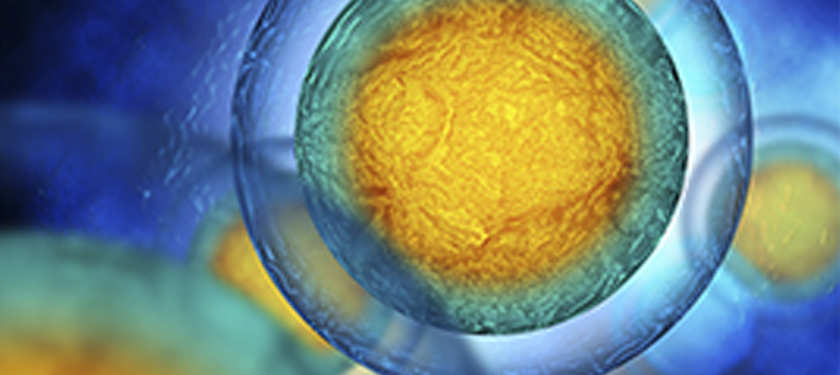
7 Ways B Vitamins Boost Your Health
B Vitamins can help you be healthy, supporting mood, energy and digestion, keeping hair and skin looking good and helping babies develop during pregnancy.
Apr. 18, 2016
- Copy Link
- Share on X
- Share on Facebook
- Share on Linkedin
If health-essential vitamins took part in a popularity contest, B and its many components probably wouldn’t make it to the final round.
Other vitamins and supplements – think C, D, calcium, and omega-3 fatty acids – tend to attract the industry spotlight and help account for the $88.3 billion (U.S.) Euromonitor International says we spend globally on vitamins and supplements each year.
But without the eight different and individually important elements of the Vitamin B family, we’d have far less energy. We’d feel more anxious and irritable. And we’d find it much harder to maintain healthy hair and skin.
“B vitamins can affect your whole body, from the top of your head to your mood, to intestinal constipation to tingling in your extremities in more severe cases,” says Kerstin Koenig, M.D., associate medical director for Abbott’s diagnostics business based in Wiesbaden-Delkenheim, Germany. Also a nutritional therapist, Koenig is on a team of scientists and doctors who work with immunoassays that run on Abbott’s ARCHITECT system in medical laboratories used by hospitals and outpatient facilities. These assays determine the presence of and measure substances in people’s blood.
In this case, the Abbott-tested Active-B12 test measures the amount of this vitamin that can readily be used and absorbed by our bodies – and can detect early if we’re deficient. Because Vitamin B tests aren’t always included in routine blood screenings – and because deficiency symptoms aren’t always obvious – people often don’t know their levels are low, says Abby C. Sauer, a registered dietitian in Abbott’s Columbus, Ohio-based adult nutrition business.
“B vitamins are not top of mind, which is unfortunate because they help all the other functions in our bodies work,” says Sauer. “They’re in the background, and are not exciting or sexy. Because there are so many of them, it’s harder to connect to what they do. Many adults 65 and older are low in B12 because of their bodies’ (reduced) ability to process and use the vitamin.” While Sauer says most people get the Vitamin B12 they need from a well-balanced diet – or can supplement their intake with balanced nutritional drinks such as Ensure – she says people with gastrointestinal or digestive conditions, strict vegetarians and vegans (because B12 nutrients come from meats, eggs, and dairy products) also need to make sure they get enough.
Here are seven reasons why the different forms of this wonder vitamin really do help you live a healthier life.

They help our bodies process energy from foods we eat.
Essentially, says Abbott registered dietitian Abby C. Sauer, B vitamins “help the body to burn fuel” from carbohydrates, fat and protein, “working with enzymes that help make energy.” Vitamins B1 (Thiamine), B2 (Riboflavin), and B3 (Niacin) are the superstars here. You’ll find Thiamine in everything from lentils to red meats to sunflower seeds; Riboflavin in nuts, green veggies, meats, and dairy products; and Niacin in foods including beans, nuts, and fish. Without them, we may feel run-down and fatigued.

They keep our brains and nerves functioning well.
B vitamins – and especially B-12 (Cobalamin) – are essential “for repairing your DNA and for the function of nerves,” says Abbott’s Kerstin Koenig, M.D. If we don’t get enough, the deficiency can lead to increased mental anxiety and tension, fatigue, poor memory, and even depression.

They help babies develop properly.
Pregnant women and those who might become pregnant especially need Vitamins B9, more commonly known as folate or the man-made folic acid (400 daily micrograms for women of childbearing age and 600 micrograms for expectant moms) and B-12, because “we want to make sure the cells in the baby are growing,” says Sauer. These vitamins play a critical role in helping develop a fetus’s brain, spinal cord, and nervous system – and also are key in preventing spinal cord defects.

They assist women who are “eating for two."
It’s critical that women who are breastfeeding consume Vitamin B9 – the B component that’s folate, or the man-made folic acid. It’s essential to ensure cellular growth both for the growing baby and for Mom, as her body recovers from pregnancy. While this vitamin is found naturally in foods such as leafy vegetables, citrus fruits, beans, and whole grains, breastfeeding women need folic acid supplements to ensure they’re getting the recommended 500 micrograms each day.

They help regulate digestion.
Different B vitamins keep our digestive systems in good working order. B1 (Thiamine) may help regulate and enhance appetite, while B3 (Niacin) is required for the proper function of fats and sugars in the body. B6 (Pyridoxine) gives your system an assist by helping process proteins you eat, and B7 (Biotin) also helps you produce cholesterol and process carbs and fats.

They’re good for cell regeneration and repair.
Vitamin B6 (Pyridoxine) and B12 “help cells to multiply – especially those that have short life spans like red blood cells,” says Sauer. And since it’s involved in dozens of the body’s cellular and enzyme reactions, B6 is key in helping with the proper growth and development of parts of the nervous system. It shows up in plenty of foods including poultry, bananas, and fish, while you’ll find B12 in fish, dairy products, meat, and fortified cereals. If you don’t get enough, you may feel weak, fatigued, and develop anemia.

They keep our hair and skin looking good.
Vitamins B2 (Riboflavin) and B7 (Biotin) play a role in maintaining healthy hair, skin – even our nails. While you’ll find Riboflavin in everything from fortified cereals to salmon and spinach, Biotin comes from sources including strawberries, cheese, and soybeans. And the reality is that when we feel that we look our best, it gives us confidence, helping us get more out of life.
For the latest on Abbott’s life-changing technology, get updates directly in your inbox.